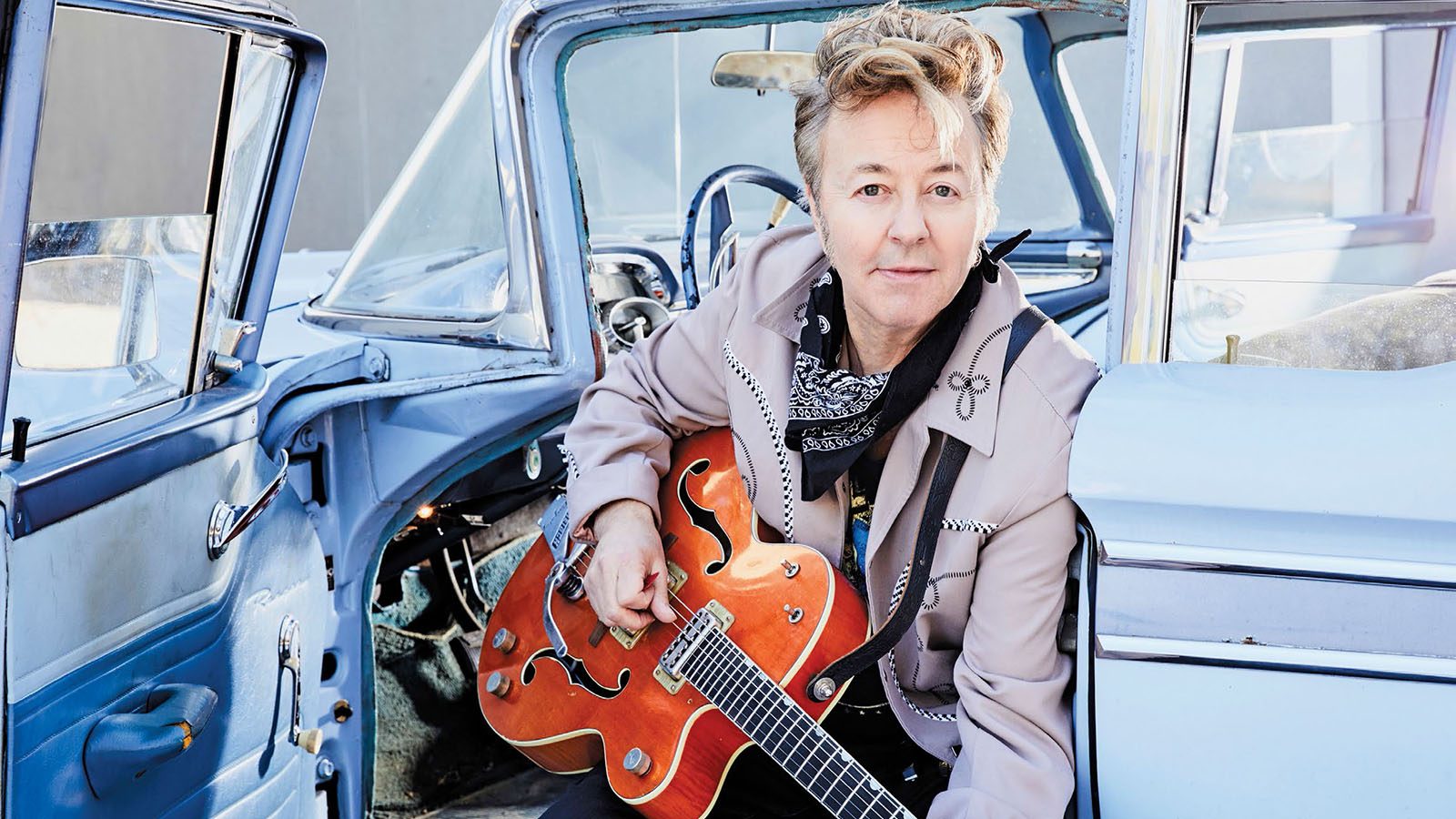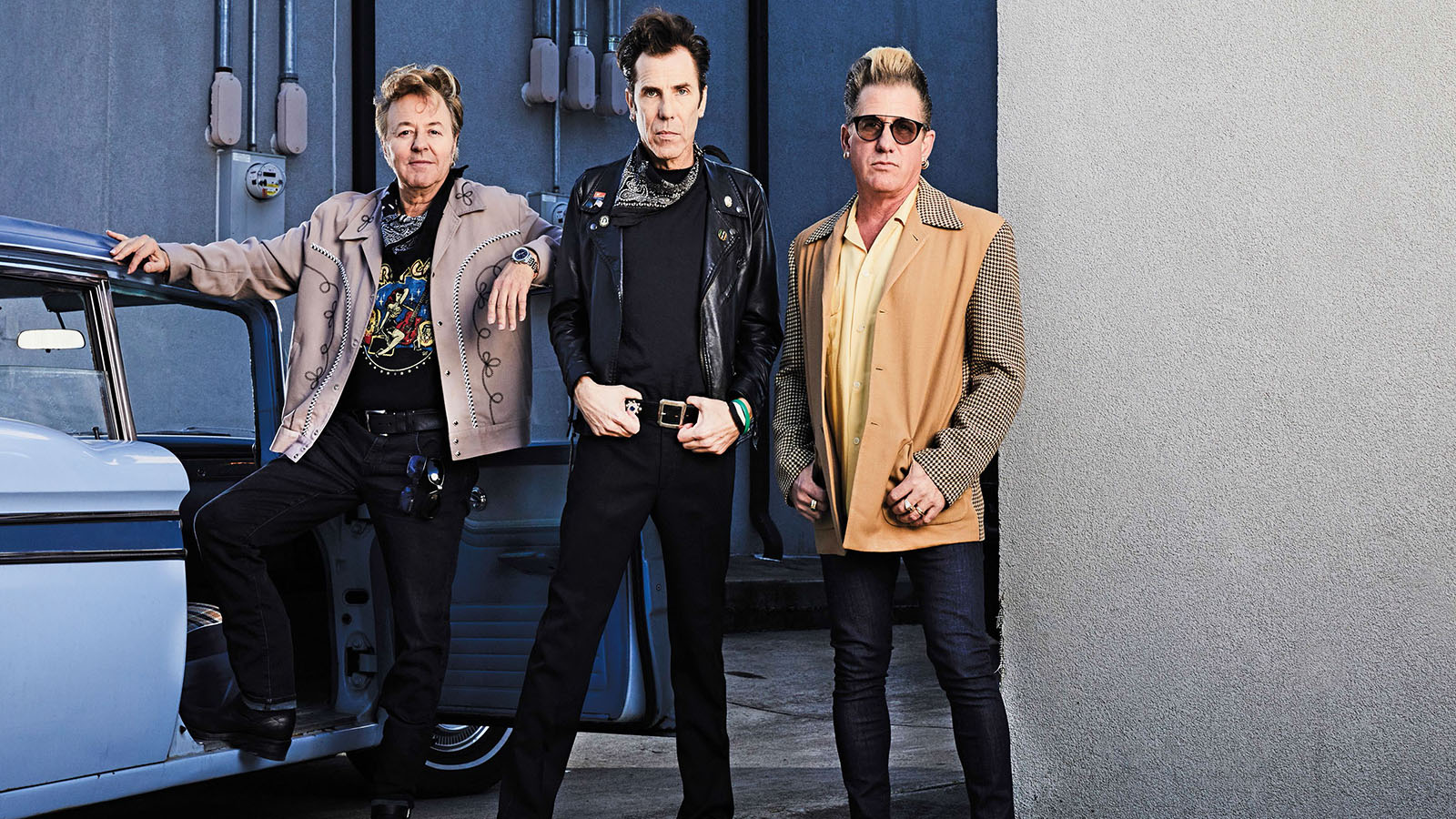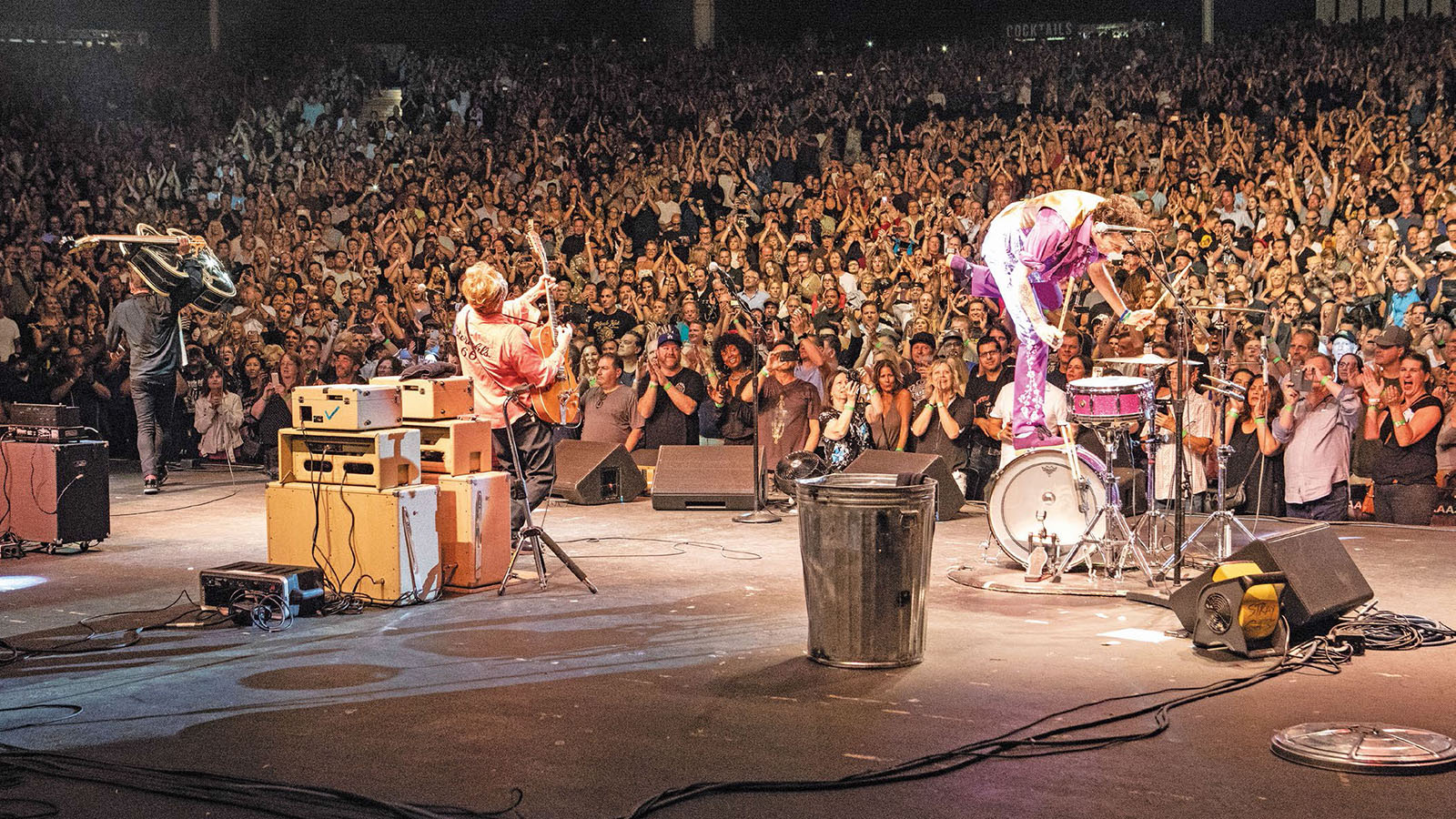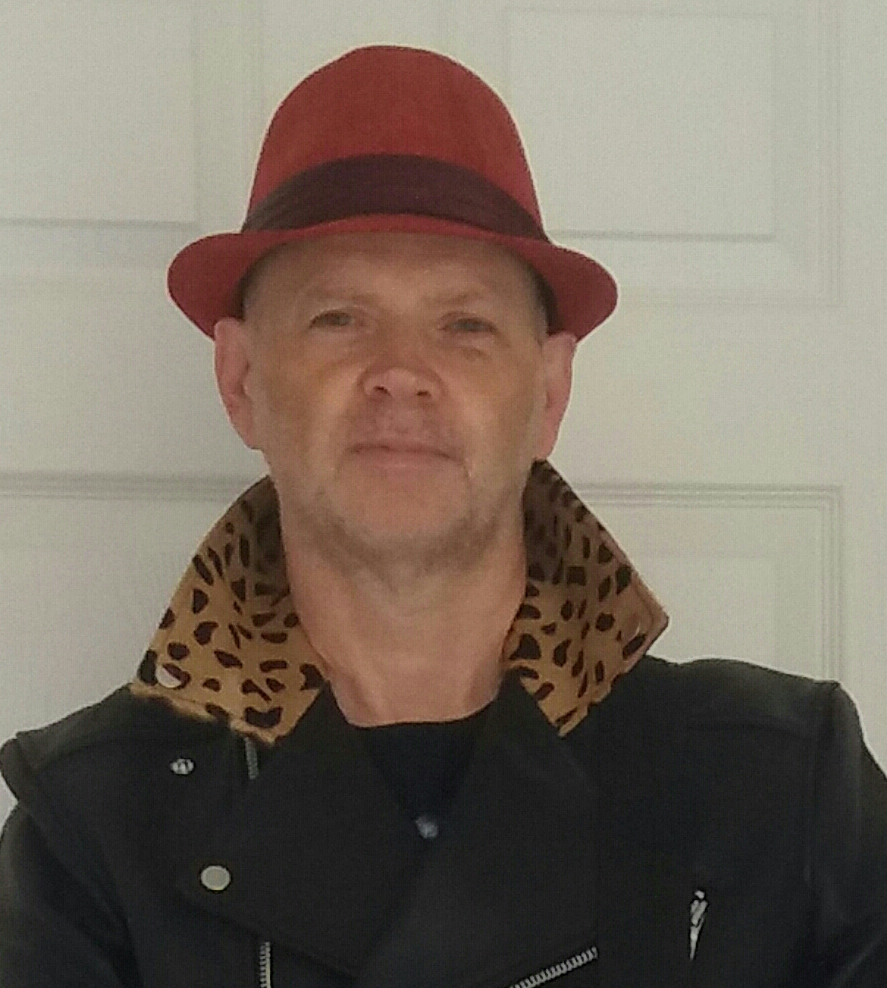Stray Cats legend Brian Setzer: "Nothing feels right after a Gretsch"
The rockabilly icon talks big-band productions, his Stratocaster fascination and the Cats' new studio album, 40

It’s been 40 years since the Stray Cats first got together, and in celebration of that milestone the band have reformed for a tour and a new studio album, 40, which they recorded in Nashville at the end of 2018.
The exciting news for fans is that rather than simply throwing a few covers together, the band came up with a disc of all-new original material that stands comfortably side by side with the best work in their catalog.
Covering all the bases, from straight-ahead rockabilly to moody spaghetti-western-vibed cuts, the constant is the clear commitment to creating a legacy-worthy body of work instead of a going-through-the-motions cash-in.
Most of the songs are penned by frontman-guitarist Brian Setzer - either on his own or in collaboration with Mike Himelstein, who has co-composer credits (with Setzer) on a number of Brian Setzer Orchestra tunes.
The exception is When Nothing’s Going Right, which was written and sung by bassist Lee Rocker. One of the catchiest tracks on the album, it would’ve been a sure-fire hit single back in the day. Drummer Slim Jim Phantom is in fine form in 'human metronome' mode, and the whole package is a potent snapshot of state-of-the-art rockabilly in the 21st century.
Central to most songs is the instantly identifiable voice of Brian Setzer and his equally distinctive guitar licks. Whether blazing through a high-octane rockabilly shred piece or comping through the entire jazz chord book, the signature Setzer Gretsch tone is right there, up-front and in your face. Setzer - arguably the greatest rockabilly guitarist of all time - manages to find new ways to wring out riffs, solos and fills that revitalize the genre.
Whether discussing the new album, guitars, the roots of the Stray Cats or particular forgotten tracks from across the years, Setzer is enthusiastic and passionate about the music he plays and appreciative of the fact that he’s been able to sustain a long career doing the thing he loves most.
All the latest guitar news, interviews, lessons, reviews, deals and more, direct to your inbox!
I think all Stray Cats fans would’ve been delighted just to see you play one more tour together, so the announcement that you were about to release an album of new material was more than they could’ve hoped for. Were the songs written for the band, or were they songs you and Lee would’ve used anyway in other projects?
"I started writing songs just out of the blue. It’s funny because I always need some kind of inspiration to write, and I got this old Fender Reverb unit. I was really impressed with the sound coming out of it, and I started writing spaghetti westerns. I had no idea where that came from.
"Then I spoke to Jim, and he said, 'Hey, it’s our 40th anniversary coming up. We should do something.' I got kinda excited by that and said, 'Let me write a song for you.' All of a sudden it started to snowball, and I had three or four of those. I suppose still it wasn’t specifically Stray Cats songs as such, more that I was writing music."
Had you and Lee been in close contact over the years?
"Oh yeah, we’d been in touch, but I suppose it was mostly me and Jim. I’d maybe be watching sports or something and I might call Jim and say, 'Hey, did you see that?' But I think writing the tunes really inspired us to get the ball rolling."
In one of the promo clips for 40, producer Peter Collins says there’s a certain kind of magic when the three of you play together. I know you’ve all got great players in your separate projects, but do you feel that spark when you’re all together?
"Yeah, it’s like a sibling thing. It’s a definite chemistry when the three of us play. You can’t say why it happens, but you know that it does."

Does this feel like a one-off venture or is it possible you could keep all the strands of your career going on a rotating basis?
"I’ve only done three shows to get things going, so why not? It sure felt good doing those three shows."
Well, there’s so much love for the band out there and that desire to see the original three guys together.
"You just never know. I was surprised so many people wanted to see the Stray Cats. I guess we made a much bigger dent than we realized."
Given the significance of the 40-year mark and, in a way, the celebration of the band, I wondered if there had ever been any notion that Dave Edmunds, who produced the first album, might have been involved.
"Absolutely. That was on the table, actually. Dave is kind of retired, though, and he had some personal issues, so he couldn’t do it. I said, 'We’ll come to Wales if you want and record at Rockfield, do it the old way.' It almost happened, too, but with age creeping up and time moving on, we couldn’t make it happen."
You’ve got a worldwide tour coming up. Will you be featuring songs from the new album besides the songs everybody expects to hear?
"Definitely. That was part of the appeal of making the new album. I thought if I had to play I Fought the Law again, you know? It’s a great song, but everybody needs a change sometimes."
I thought it was interesting that your solo on Got Love If You Want It from the new album references your Ubangi Stomp solo from the first Stray Cats album. Was that a deliberate nod or just something in your DNA?
"You know something? It is kind of a takeoff on that. It just came out that way when I played it and I wanted it to sound really loose. I played my old Gretsch Silver Jet on that one. I just started playing it and it sort of fit - [hums the riff] - it’s just a good, rocking riff."
It’s funny that on the Warren Smith original they use that riff only for the intro and outro, but not the solo.
"Yeah. Some of those old records have some amazing riffs and solos. People could ask me who are some of your favorite rockabilly guitarists and I’d have to say 'guys that I can’t even give you the name of.' So many great solos on records where we’ll never know who the guitarist was - especially some of the obscure stuff that might not have ever been a hit.
"There’s like a thousand unknown guys out there who came up with one really great solo, and they weren’t listed anywhere as having played on the song."
You’re also taking the Rockabilly Riot band out on tour once the Stray Cats dates have been completed. Given that there’s a degree of overlap on the set lists, how does the feel differ from playing them with Stray Cats as opposed to the Riot Squad guys?
"It is definitely different. With the Rockabilly Riot guys it’s me, ya know? I play more guitar solos, do more instrumentals. The guys are supporting me, whereas the Stray Cats are a band, and so when we’re playing together it’s about the band. I enjoy them both."
The Brian Setzer Orchestra has been a big part of your career. Is it the logistical and cost constraints that limit how much you can do with the BSO?
"I would definitely do it more often; it’s just too expensive to drag that thing around the world."
You’ve been really prolific for years. What is it that drives you and keeps it fresh for you after all of this time?
"It’s always a guitar riff. I’ll be sitting around and come up with a riff, and it just comes out of me, and it’ll be so inspiring that I’ll have to finish the song. And there are certain tones I still love - tape delay and the twang of a Gretsch, that little Fender Reverb unit - those sounds are so inspiring to me."
Rolling back to the early days of the band, you went to the UK in 1980 to try to make something happen. Was it because there was no real rock ’n’ roll scene in the States at the time?
"Other than what we were starting to stir up, no, absolutely not — particularly in the way the UK had kept not only rock ’n’ roll but blues and jazz alive. Credit where credit’s due for that."

When you hooked up with Dave Edmunds to produce your debut album, it was a funny coincidence that he’d played in a fictional band called the Stray Cats in the 1973 movie That’ll Be The Day. Seems like fate…
"At the time we got together, I had no idea! And being Dave Edmunds, he didn’t even mention it to us until probably the second album. Isn’t that crazy, though?"
The self-titled debut album and its singles - Runaway Boys, Rock This Town and Stray Cat Strut - were very successful, yet the second album, 1981’s Gonna Ball, didn’t do quite as well. [Note: Songs from the first two albums were repackaged into a US-only release called Built for Speed in 1982]. The sound on the second album seems, in hindsight, to be moving more to what you would later do in BSO - more bluesy, jump blues and old-time R&B. You Don’t Believe Me has a great slide guitar part. What prompted the change?
"That was us kind of dropping the ball, I think. Once you get the hit and you got something good going, I would say, 'Sounds great - let’s change it.' And I’m thinking later, 'Why?' I think that was just not really thinking it through. I think we got it back together for the third album, Rant n’ Rave with the Stray Cats [1983]."
That was a great album, yet critics didn’t receive it well. It was that predictable backlash that so many acts suffer after the first flush of success. Did that response frustrate you?
"Man, you’ve got to have a thick skin in this business. You just do what you do. I don’t worry about that kind of thing."
Look at That Cadillac [1984] could’ve been a BSO song. Was that a side of you that you’d been itching to express?
"Well, that’s right. That had always been in the back of my mind. I always knew how to read and write music. I wanted to put a big band behind my guitar, so I think you’re right, that was probably the beginning of that. Writing all those parts and figuring it all out."
After the first real split from the Stray Cats, you came out with your first solo album, The Knife Feels Like Justice [1986]. That was a real left turn for you — two guitars, female backing singers, even the guitar choice with the Telecaster. Was that a conscious decision to shift away from what you were expected to do?
"Not so much a deliberate change, I suppose, but as a musician you want try to do different things. You want to try something new. You try things; some work out great, and sometimes you fall flat on your face. You have to do whatever you feel like or else you’ll only look back and have regrets."
You’ve not revisited a lot of your older songs from the earlier solo years. Is that because you don’t feel they work as well for you now stylistically?
"I think what it is - and it’s a good problem to have, if you ask me - is that I have so many songs that people will expect to hear that I can’t leave out. If I didn’t play certain songs people would get pissed, you know?"
Around that late-'80s, at the end of the first run of Stray Cats and onto the first solo album, you had another guitarist - Tommy Byrnes - in the band. You had a different interplay going on with things like “Stray Cat Strut.” Did it feel too restrictive to have another guitarist ultimately?
"No, it was kinda nice. You could lay back and sing a little more. I got into the -twin guitar solo- thing as well - that was fun to experiment with. At this point it’s really fun to play with a three-piece. I think it’s where I play the best, just a bass and drums - the way it started."
I suppose it must be very liberating for you as well.
"Yes. You can run where you want. With the big band if those guys are hitting a chord, you’d better be hitting that chord. It’s the big leagues. In the three-piece band, if the bass is playing C, I can do any kind of scale or chord working off that root note - you’re more wide open."
Songs from Lonely Avenue [2009] was a great album in your catalog that kind of got overlooked. It had a different feel from a lot of your other work
"That’s an album I thought would’ve gone a little farther. I got nominated for a Grammy for it. It was a real interesting album for me. I recorded it in a basement. I really like the songwriting on that one. I got to play some of the songs live. That’s one that I would’ve liked to have gotten a little more mileage out of because I loved playing those songs."
You’ve been 'Mr Gretsch' for 40 years. Do you play anything different at home? Any Strats or Les Pauls?
"I have a bit of a fascination with Stratocasters, but every time I pick one up, I go, 'I can’t play it.' The middle pickup gets in the way, I don’t like the scale, the volume control is right in the way there, the screws on the bridge dig into my palm. But I think it’s like a mid-century piece of modern art.
"When it comes down to it, it’s just the [Gretsch] 6120s that have everything for me. Nothing feels right after a Gretsch. It has to be an archtop, though, with the air moving in and out and you can play with the sound coming out of the amp."
People might not remember that the first signature guitar you had, in the mid '80s, was actually a Guild Bluesbird.
"You’re right. That was so long ago. Gretsch wasn’t coming to the plate; I don’t think they were really making guitars. Guild did come up to the plate and said, 'We’ll make you a guitar.' When Gretsch got wind of it they said, 'Hey, we’ll make you a guitar.' I’ve got a great old Guild acoustic guitar; Guild made great guitars. But yeah, I’ve always been a Gretsch guy fundamentally."
Your own work and the Stray Cats have been heavily bootlegged. There are hundreds of shows out there. Does the bootlegging bother you?
"Ha! Everything you do now is pretty much out there. When it first came out it was a big deal but now - gosh, you know they’re stealing pennies from you - it’s a laugh. It’s nice that people want to listen to you. The people who are getting the bootlegs are probably the serious fans anyway who are buying all of your legitimate releases.
"I must say, we have some really devoted fans. We get people at all of our gigs who’ll travel across the world. It’s such a blessing. I really appreciate that level of support that means I’m able to keep what I’m doing through all my different projects. I’ve been very lucky. People have stuck by me through all the things that I’ve done. I’ve been on a great musical journey."
Mark is a freelance writer with particular expertise in the fields of ‘70s glam, punk, rockabilly and classic ‘50s rock and roll. He sings and plays guitar in his own musical project, Star Studded Sham, which has been described as sounding like the hits of T. Rex and Slade as played by Johnny Thunders. He had several indie hits with his band, Private Sector and has worked with a host of UK punk luminaries. Mark also presents themed radio shows for Generating Steam Heat. He has just completed his first novel, The Bulletproof Truth, and is currently working on the sequel.

